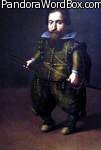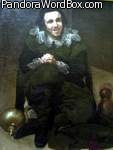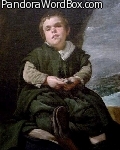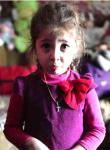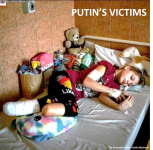Our websites offer information mostly for educational purposes with no intent to alter health care protocols nor to serve as a sole source of medical information.
Always seek the advice of your local health care provider.
|
×  Get the Point! PAIN – WOMAN – UKRAINE – PUTIN MOTHER – SISTER – SPOUSE – MOTHER RUSSIAN WAR – HOLOCAUST – GENOCIDE |
GNOME
Pigmy Nanism
Midget Dwarf
Achondroplasia
To grasp the ideas and nuances in MIDGET, GNOME, DWARF, PIGMY and other designations of humans, who are smaller in size, requires several overviews. In this overview, we focus on general ideas associated with the words DWARF and MIDGET. Ideas associated with LEPRECHAUNS and ACHONDROPLASIA are presented in other overviews.
MIDGET implies proportional diminution of body mass in contrast to DWARF, which implies disproportion. MIDGET points to MUKHA and MUSCA, in Ukrainian and Latin for FLY or GNAT as in GNOME. Surely, MIDGETS and MUSHROOM being related, denote the influence of poetry and may have prompted legends that MIDGETs have magic insights, perhaps because being small, they are prone to find hidden treasures. The above is consistent with ideas in GNOME and GNAT, which point to Greek GNOMOS for thought and GNORISIS for IGNORANCE. GNOMES inhabited the inner recesses of the earth and had magic powers alike to those of an ELF, LEPRECHAUN and FAIRY and presumably could, if they wished, help humans clarify their IGNORANCE.
DWARF relates to the Sanskrit term DHVARAS for DEMON, which in Roman times, meant GOOD ANGEL. DAIMON, in Greek, conveyed the idea of a DIVINE PROTECTIVE SPIRIT. Lucky was the person or household to be granted such GUARDING SPIRIT which now Christians refer to as "PATRON SAINT".
There are many terms for "little person", among them , BROWNIE, PIXIE, HOMUNCULUS, LILLIPUT, SUDRI, AUSTRI, NORDRI, WESTRI, CABEIRI, PUTTI and VAMANA (listed in the table to be explored individually).
To expand the scope of ideas linking MIDGET with FLY and MUSHROOM, note that PYGMY, according to classic mythology, sprung from WASTE as real MUSHROOMS often do.
PYGMY implies small or PICCOLO in Italian. In science the symbol for PICO denotes one trillionth, as in PICOGRAM or PICOCURIE. PICO is BEAK in Spanish and presumably birds PECKING can only grasp small quantities or PICOGRAMS per peck. In any case, once an army of "little African people" attacked Hercules and lost. Heredotus states that Hercules exiled these pygmies to Eurystheus. Perhaps this is a relevant account about the ancestry of the current "African Pygmy" populations. This story inspired others, most notable, that about Gulliver. In modern times, a foundation of "Little People of America" arose to facilitate medical care and research to clarify the various causes or etiology of "short stature" syndromes.
This "little person" is referred to as "bobo", Spanish for mentally deficient. Note that the "eyes are crossed" (strabismus). It is not possible from this painting to say if the body proportions are normal. If so, this person may be called a "midget", otherwise he may be called a "dwarf". (Velazquez)
Analogous to PICO, NANUS also stands for "small" and in Greek it denotes MIDGET. In science, the prefix NANO means one billionth as in NANOGRAM or NANOSECOND. In Medicine, NANISM implies SMALL as does ENANO in Spanish or NONOID for dwarf like or NANOSOMIA for small body, or NANCEPHALIA for small head or MICROCEPHALY.
Investors in NANOtechnology must realize that such emerging companies barely earn PICOdollars.
Finally, my PIXIE tells me that it is time to end these comments to avoid getting a PIXILATED vision and to invite those interested in more stories about elfs and leprechauns to explore the "Notes and Comments" offered by the links shown in the left column.
An email we received stated - we presume you know the term midget is offensive to little people. Pandora Word Box is dedicated to the ideas and roots of words with an emphasis on medicine (expanded etymology by mythology, history, poetry and other humanistic spheres). Our intention is not to be offensive but the word populates many dictionaries and daily language. We recognize that some words are vulgar to some and offensive to others, but we can not avoid having to recognize the realities of prevalent use.
20100803 20161220 ww



